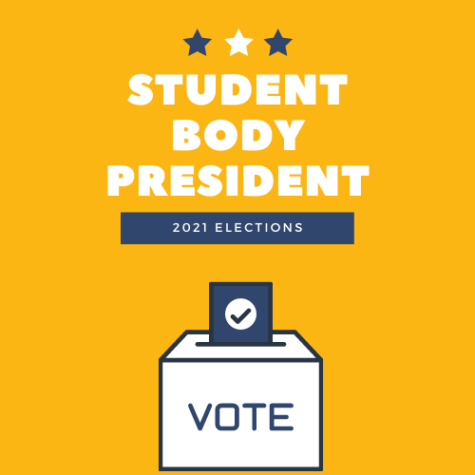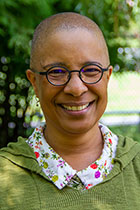JBS Counselors Talk Stress
December 27, 2020
How the pandemic increases student’s already high anxiety levels.
In the most recent health survey from 2018, 64 percent of Burroughs students reported having “a lot” or “an extreme unmanageable amount” of stress. This figure is up 10 percent from the previous survey in 2016, indicating that stress among students is significantly increasing.
Between tests, essays, extracurriculars, and the standard homework, Burroughs students feel that the many assessments add up to a fairly demanding nightly workload. Due to the sports requirement, high schoolers also have a two-to-three-hour practice every day after school, leading many students to cite that time commitment as an additional stressor. Sally Kilbride, Kim Bouldin-Jones, and Jennifer Jones are all members of the JBS counseling department, and in normal times, they see students in their third-floor offices nearly every day. “I think we have a lot of kids who have perfectionistic tendencies,” says Mrs. Kilbride, “and I worry about those kids a lot, especially in these circumstances where everything is a little bit up in the air.” When discussing stress at JBS, the counseling department cites high expectations from parents, teachers, and students themselves. As a college preparatory school, the heavy emphasis on college acceptance is an issue that the counseling department feels is generally unhealthy and excessive.
Ms. Jones also notes that if “some part of your identity makes you feel ‘other’ or unwelcome, that can lead to stress.” This can be part of one’s identity relating to race, gender, socioeconomic status, or even differences in religious or political beliefs. Burroughs actively works to create an inclusive community, but if something leaves students feeling on the outs, the many hours at school can add up to feeling isolated. New stressors also arise from the pandemic: social isolation, financial insecurity, being at-risk, or having a loved one at-risk could all contribute to the pressure that students are facing. High schoolers now come to the counseling office expressing concern over how their grades are weighted and how testing procedures will work in a new hybrid model. Others may just miss friends in the other cohort or are disappointed by canceled traditions.
Ms. Bouldin-Jones, who has worked at Burroughs since 1999, points to the many changes JBS has made in an attempt to lessen the stress students face. Currently, students only take one-semester exam per day (instead of two) and weekly advisories are meant to provide additional support. The counseling department has also added more health and wellness programs; a weekly 8th-grade seminar class gives the counseling department time to talk about self-care, and they also teach around half of the classes in the 7th-grade seminar (formally called orientation).
The “two test rule,” where students can request to space out major assignments if more than two are scheduled per day, is another guard rail that has been added since Ms. Bouldin-Jones came to Burroughs. In light of this year’s unique challenges, school begins at 8:45 every day, and teachers are now allowed to modify test formats in order to compensate for the difficulties of hybrid learning.
“The rigor was kind of what people wanted when they came here, but mental health has become more of an issue in the last ten years, whereas before you would kind of just suck it up and do the work,” says Ms. Bouldin-Jones. The blame, she feels, should not entirely fall on the school, but on society’s larger lack of concern towards mental well-being. We now realize the toll it takes on students, as “society is moving into a place where we realize that mental health is just as important as physical health.”
This year in particular presents unique challenges to a school that is already struggling to manage student stress. Administrators, teachers, and students are all working to find a balance between Burrough’s renowned academic rigor and accommodations for hybrid learning in a pandemic. The Burroughs community frequently receives surveys from the school, providing an easy way to give feedback. In terms of changes in curriculum and difficulty due to the pandemic, Ms. Jones notes, “Your parents picked this school because of the academic rigor, so there’s pressure to keep that up.” For juniors and seniors heading to college, this insistence on keeping the same level of intensity despite this year’s challenges is even stronger. “There’s also pressure because our faculty is fantastic and they’re really good at their subject matters, and they want to do a really good job and they enjoy the academic rigor,” Mrs. Kilbride adds. However, despite Burrough’s tendencies, the message in numerous faculty meetings has been clear: this year is different, teachers might have to pull back a little bit, and that’s OK.
Although the school has made an increased effort to promote health and well-being, the Counseling department continues to see that some students are pushed too far: “I think we’re always kind of bumping up against that line…We’re the people who want to achieve and want to push ourselves,” says Ms. Jones. Ms. Bouldin-Jones agrees that the school can push some students over the edge, stating, “I’ve been here a long time… I think we would be lying if we sat here and said no.” After 21 years at the school, she has seen many smart, accomplished students pay the emotional price for working through six full years at JBS. She also revealed that many students report this pressure coming from their parents and even themselves. According to health survey data from JBS and other secondary schools, stress levels between Burroughs students and that of other comparable independent schools are similar. Even though these levels appear standard across independent school students, many agree that, at times, the pressure at JBS can accumulate to an unhealthy amount. In the words of Elsa Wimmer (‘24), “School is supposed to be a good stress that causes you to work hard and be motivated, not make you cry.”One major reason for the academic rigor is to prepare kids for college. In that sense, the Counseling department agrees that the challenge makes kids especially well-equipped and resourceful when it comes to those skill sets. “I love how prepared you all are for college,” says Ms. Jones, “I think you come out of here with extremely good writing abilities and extremely good problem-solving abilities.” The counselors feel that Burroughs kids are investing time in high school in order to learn how to study, write, and manage stress, all of which make college life much easier. Ultimately, this rigor is truly part of why students chose Burroughs.
“No matter how much it stressed me out, I think it was something I’ve liked about Burroughs, that it was always challenging me,” says Milah Padda (‘22). The Burroughs counselors are optimistic that with more time and attention towards well-being and mental health, students can better manage stress. “As competitive people, as intelligent people, we can recognize the importance of balance,” says Ms. Jones. “If we are going to push our brains that hard, then we have to take care of the body. You know, this whole machine has to work well together.”






